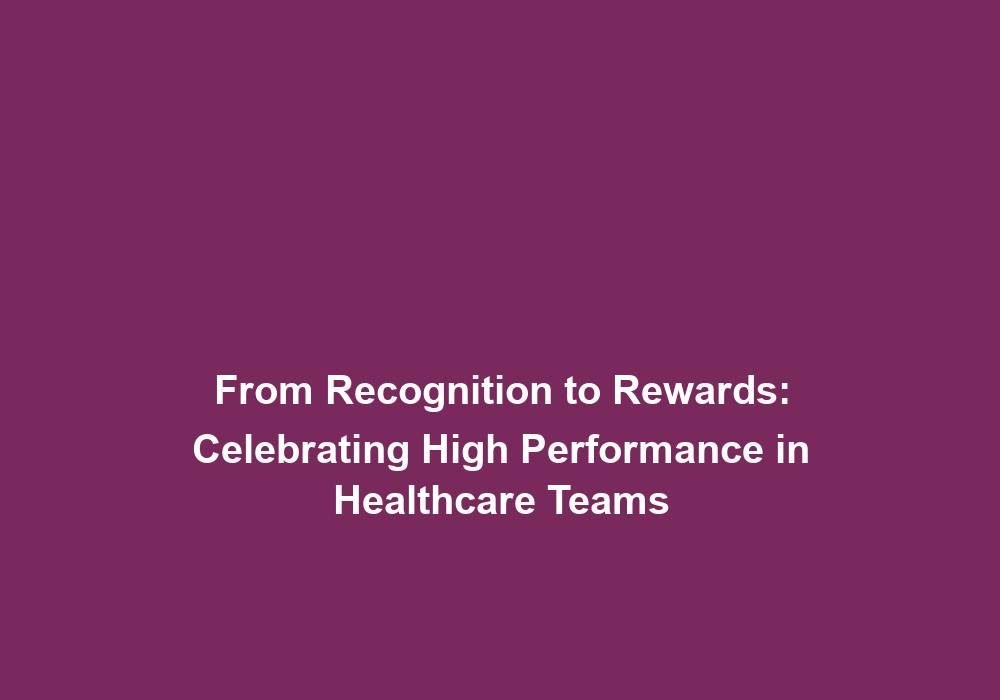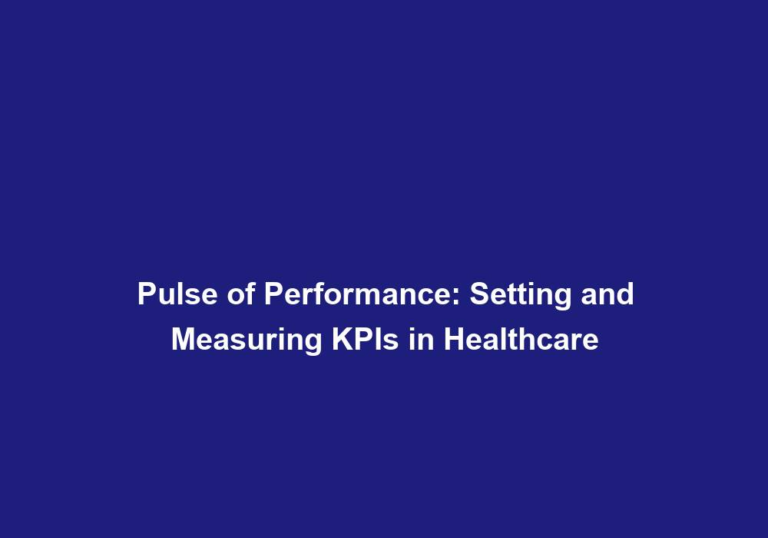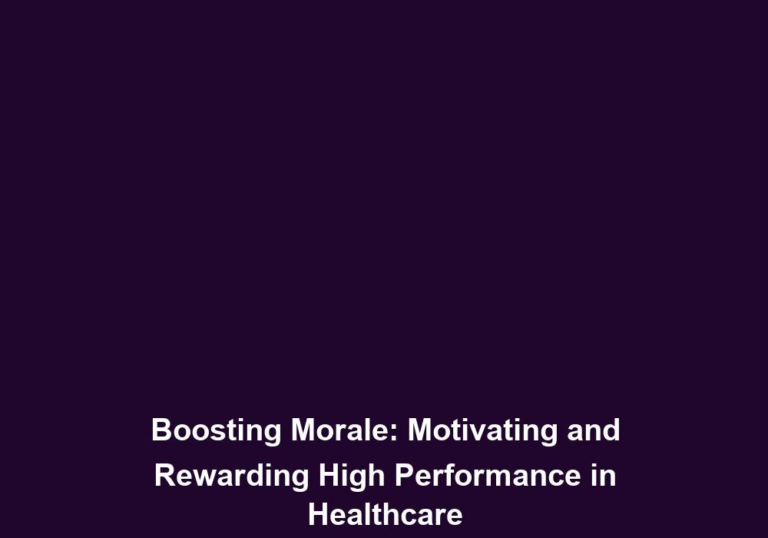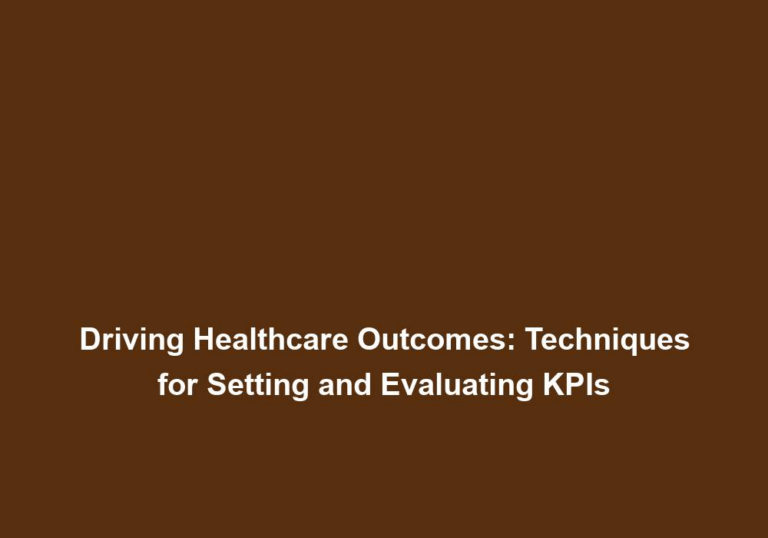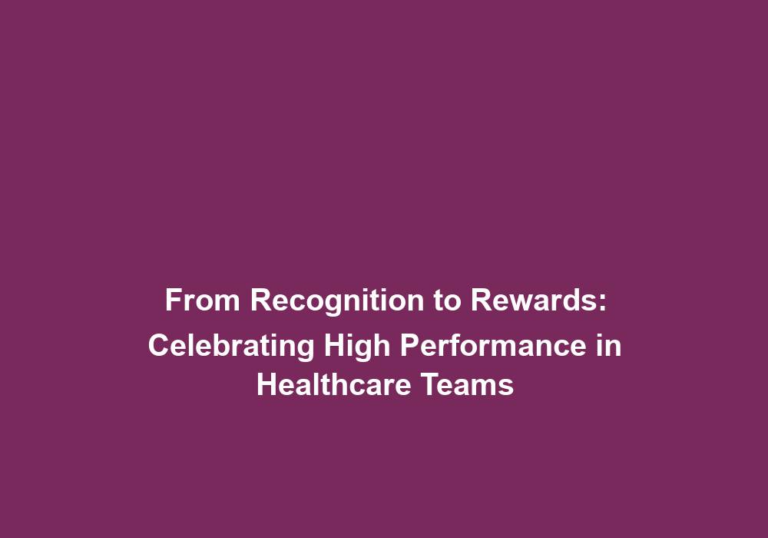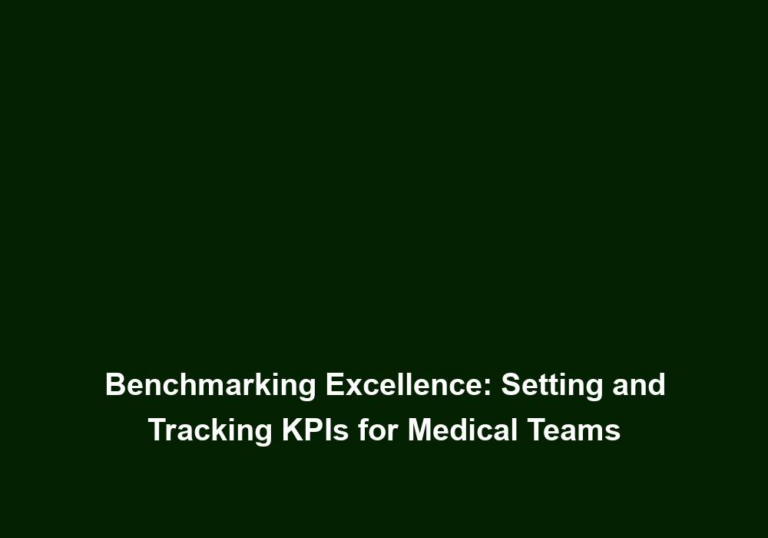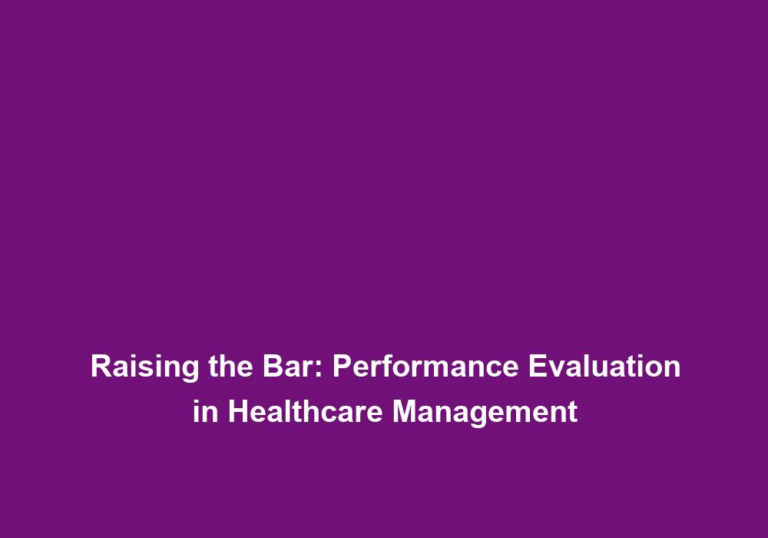Elevating Excellence: Strategies for Motivating and Rewarding High Medical Performance
In the highly competitive and rapidly evolving field of medicine, motivating and rewarding high medical performance is crucial for delivering exceptional patient care and driving success. Healthcare organizations must adopt effective strategies to inspire and incentivize their talented medical professionals to continuously strive for excellence. This article explores various approaches and best practices that can be implemented to elevate excellence in medical performance.
Importance of Motivating and Rewarding High Medical Performance
Motivating and rewarding high medical performance not only benefits individual professionals but also has a positive impact on the overall quality of patient care. By recognizing and incentivizing exceptional performance, healthcare organizations can foster a culture of excellence, improve patient satisfaction, and attract and retain top talent. Moreover, motivated medical professionals are more likely to continuously update their skills and knowledge, resulting in better clinical outcomes and advancements in medical practices.
Creating a Culture of Excellence
1. Establish Clear Performance Expectations
Setting clear performance expectations is essential for motivating high medical performance. When healthcare organizations clearly communicate their vision, mission, and values, they align all healthcare professionals towards a common goal. Along with this, it is crucial to define measurable performance metrics and effectively communicate them to ensure everyone understands the standards they are expected to meet.
- Clearly articulate the organization’s vision, mission, and values.
- Define specific performance metrics that align with the organization’s goals.
- Communicate expectations clearly to all medical professionals.
- Provide regular updates and reminders to keep performance expectations at the forefront of everyone’s minds.
2. Provide Regular Feedback and Recognition
Frequent feedback and recognition play a pivotal role in motivating and rewarding high medical performance. Implementing a structured feedback system that allows for constructive criticism as well as positive reinforcement is essential. Recognizing and celebrating achievements publicly reinforces a culture of excellence and inspires others to strive for greatness.
- Establish a formal feedback system that encourages open and honest communication.
- Provide constructive feedback to help medical professionals improve their performance.
- Recognize and celebrate achievements publicly to boost morale and motivation.
- Encourage peer-to-peer recognition to foster a supportive and collaborative environment.
3. Foster Professional Growth and Development
Investing in continuous professional development programs enhances the skills and knowledge of medical professionals, motivating them to deliver high-quality care. Offering opportunities for attending conferences, workshops, and training sessions helps medical professionals stay up-to-date with the latest advancements and best practices. Encouraging medical professionals to pursue advanced degrees and certifications further enhances their expertise and contributes to the organization’s success.
- Provide funding or sponsorship for medical professionals to attend relevant conferences and workshops.
- Offer in-house training programs to keep medical professionals updated with the latest medical advancements.
- Support medical professionals in pursuing advanced degrees and certifications.
- Encourage participation in research projects and clinical trials to foster innovation and knowledge sharing.
Incentivizing High Medical Performance
1. Performance-based Financial Incentives
Motivating high medical performance through performance-based financial incentives is an effective strategy. Designing compensation models that reward exceptional performance, such as productivity bonuses or pay-for-performance structures, can drive medical professionals to excel. It is important to tie financial incentives to specific, measurable metrics that align with the organization’s goals and values.
- Develop a fair and transparent compensation model that rewards high performance.
- Align financial incentives with key performance indicators that directly contribute to patient care.
- Regularly review and update the compensation model to ensure it remains competitive and motivating.
2. Non-Financial Incentives
While financial rewards are important, non-financial incentives can also be powerful motivators for high medical performance. Consider offering perks such as flexible work schedules, additional vacation time, or access to cutting-edge medical technology and resources. Recognize high-performing medical professionals with certificates, plaques, or other forms of public acknowledgment.
- Provide flexible work schedules to help medical professionals achieve work-life balance.
- Offer additional vacation time as a reward for exceptional performance.
- Provide access to state-of-the-art medical technology and resources to enhance professional growth.
- Recognize high-performing medical professionals through certificates, plaques, or public announcements.
3. Career Advancement Opportunities
Providing clear paths for career advancement can significantly motivate medical professionals to excel. Creating well-defined career progression frameworks and offering opportunities for promotions, leadership roles, and specialized training programs can drive high medical performance. Supporting mentorship programs that connect experienced professionals with aspiring ones fosters knowledge transfer and career growth.
- Develop a clear career progression framework that outlines the requirements for each level.
- Offer opportunities for medical professionals to take on leadership roles or specialized positions.
- Provide mentorship programs to facilitate knowledge sharing and career guidance.
- Invest in training programs that help medical professionals develop the skills necessary for advancement.
4. Peer Recognition and Collaboration
Encouraging a culture of peer recognition and collaboration can boost motivation and foster a sense of teamwork. Establish forums or regular meetings where medical professionals can share success stories, best practices, and challenges. Implement a peer nomination program that allows professionals to recognize and appreciate their colleagues’ exceptional contributions.
- Create platforms for medical professionals to share their success stories, best practices, and challenges.
- Establish regular meetings or conferences where professionals can collaborate and learn from each other.
- Implement a peer nomination program to encourage professionals to acknowledge their colleagues’ outstanding achievements.
- Foster a supportive environment where medical professionals can seek advice and support from their peers.
5. Quality Improvement Initiatives
Engaging medical professionals in quality improvement initiatives empowers them to contribute their ideas and expertise towards enhancing patient care and outcomes. Encourage participation in research activities, clinical trials, and evidence-based practice projects. Acknowledge and support their contributions to promote a sense of ownership and pride.
- Involve medical professionals in quality improvement initiatives and decision-making processes.
- Encourage participation in research activities, clinical trials, and evidence-based practice projects.
- Provide resources and support for medical professionals to implement their ideas and recommendations.
- Recognize and celebrate successful quality improvement initiatives to motivate further engagement.
Conclusion
Motivating and rewarding high medical performance is crucial for elevating excellence in healthcare delivery. By establishing clear expectations, providing regular feedback and recognition, fostering professional growth, and implementing effective incentive programs, healthcare organizations can inspire their medical professionals to consistently deliver exceptional care. Creating a culture of excellence and providing opportunities for career advancement further contribute to a motivated and high-performing workforce. Ultimately, these strategies lead to improved patient outcomes, enhanced reputation, and continued success in the ever-evolving field of medicine.

